Advancing Research to Improve Sustainability and Repair Damaged Ecosystems
Through its depth of expertise in solar energy, water quality and sustainable technologies, The University of Toledo is leading efforts to mitigate the negative environmental impacts of human activity to protect the future of our planet.
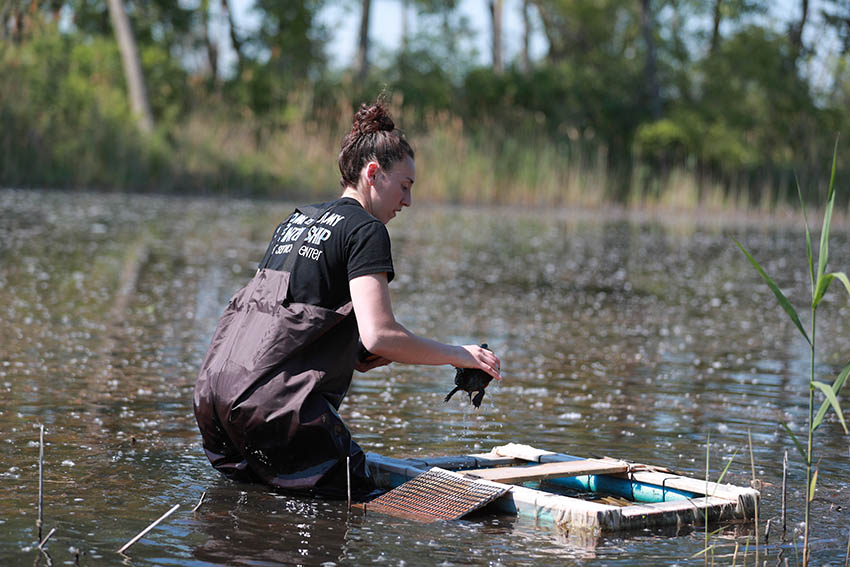
New research by Bill Hintz, Ph.D., assistant professor of ecology, details how the overuse of road salts to melt away snow and ice — tripling over the past 45 years — is contaminating drinking water sources. He suggests several solutions, including treating roadways prior to winter storms and live-edge plows to better remove snow from roadways.
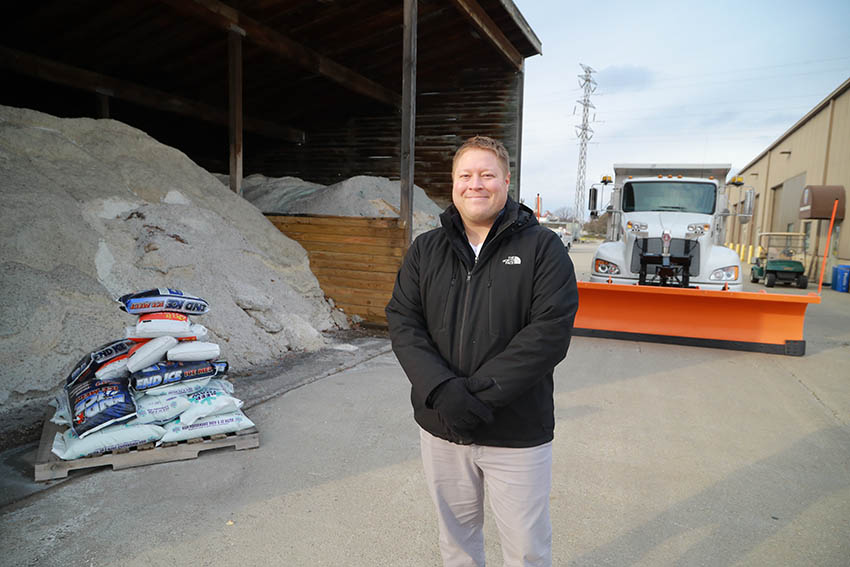
New technology to address issues caused by farm waste being developed by Sridhar Viamajala, Ph.D., professor of chemical engineering, aims to recover ammonia from dairy cow manure for use in other technologies such as plant fertilizer, which would reduce pollution and improve water quality.
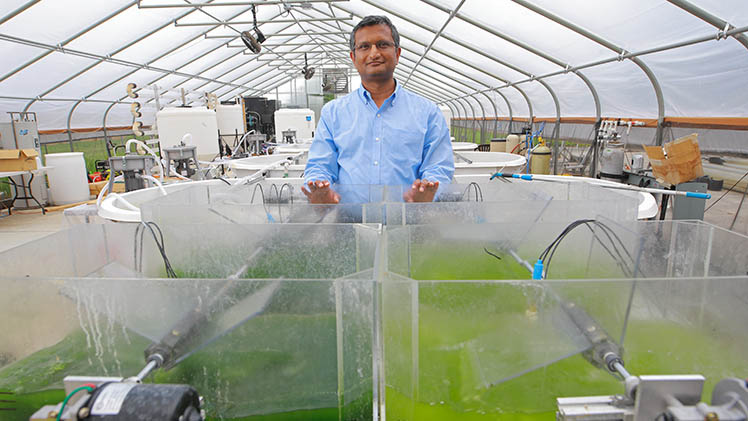
Contaminated water ecosystems have a negative impact on wildlife that live there, according to research by Jeanine Refsnider, Ph.D., associate professor of environmental sciences, who documented higher stress levels and weakened immune systems in birds and reptiles living in areas with toxic algal blooms.
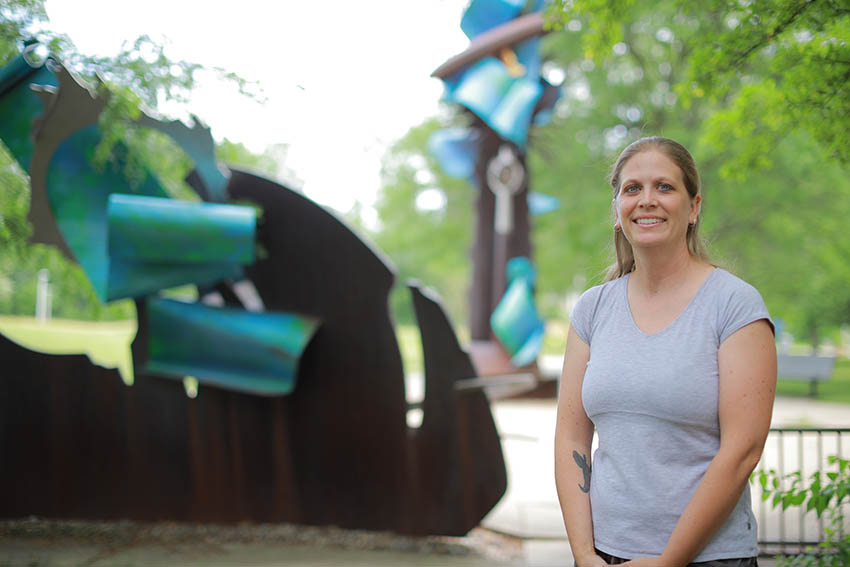
UToledo physicists are pushing the limits of solar electricity by combining two types of solar cells to harvest light not only directly from the sun but also light reflected off the ground. With support from the U.S. Department of Energy, Zhaoning Song, Ph.D., research assistant professor, and Yanfa Yan, Ph.D., Distinguished University Professor of physics, are creating the new technology to develop stronger and longer-lasting solar panels.
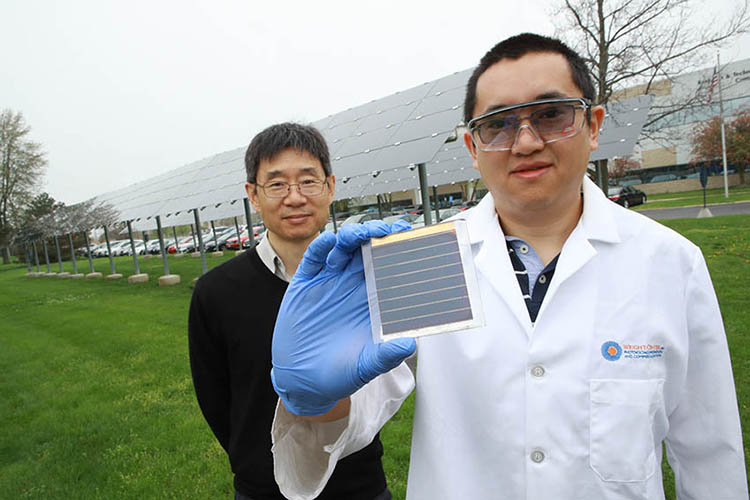
Extending the life of lead batteries is important for an electric and decarbonized future. Cora Lind-Kovacs, Ph.D., professor of chemistry, is partnering with the U.S. Department of Energy’s Argonne National Laboratory to create more efficient and sustainable rechargeable batteries.
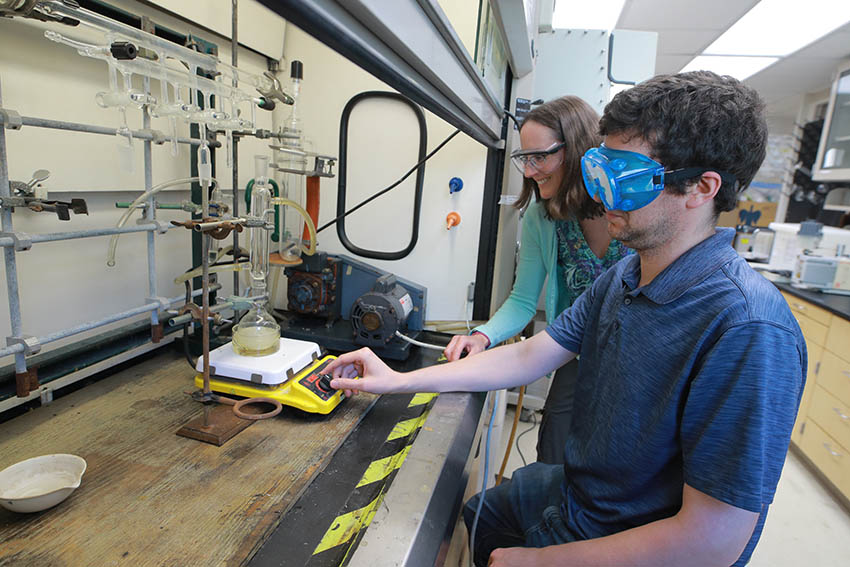
The Dr. Nina McClelland Laboratory for Water Chemistry and Environmental Analysis at UToledo focuses on research to ensure safer water and a cleaner environment. The lab is named in honor of McClelland, a UToledo alumna and chemist who focused her life’s work on improving water quality in roles with the American Chemical Society and NSF International.
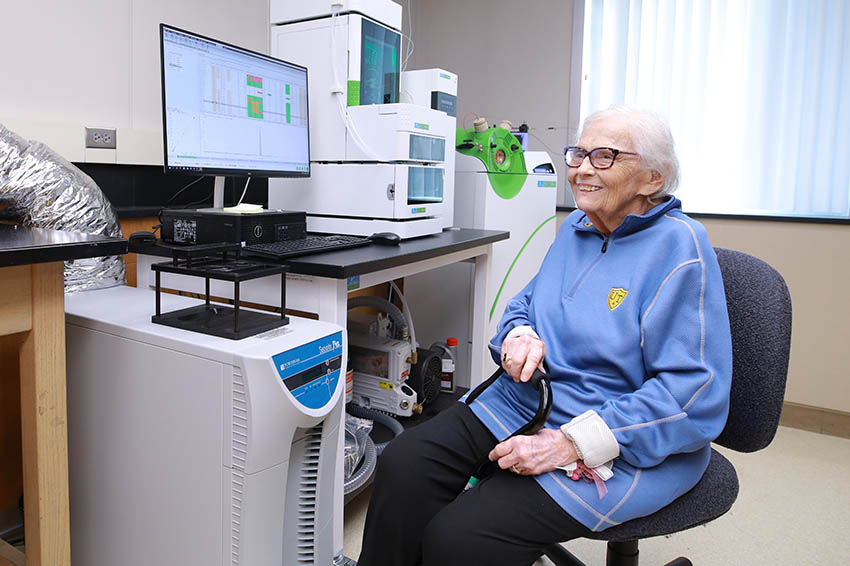
UToledo graduate student Kaitlen Lang, who studies the management of invasive grass carp in Lake Erie, was chosen for the prestigious John A. Knauss Marine Policy Fellowship through the Ohio Sea Grant that places students in offices in the legislative and executive branches of U.S. government to pursue their interests in policy decisions that impact ocean, costal and Great Lakes resources.
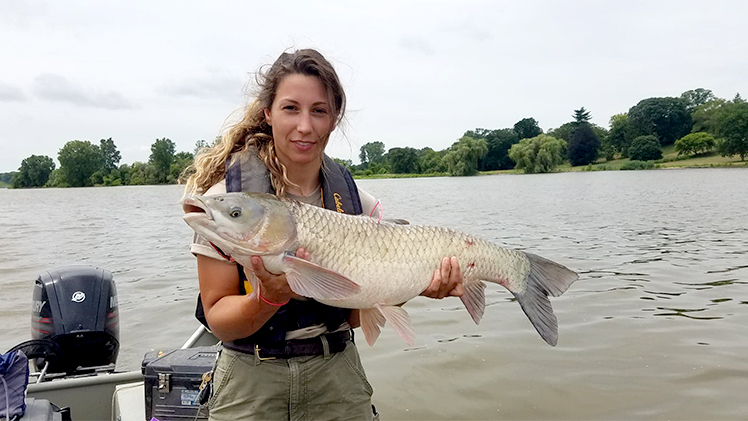
Learn More
- New York Times: Road Salt Works. But It's Also Bad for the Environment.
- The Hill: Road salt contamination of freshwater 'requires immediate attention,' warns scientist
- Popular Mechanics: Road Salt Is Wreaking Havoc On Our Drinking Water and the Environment, Study Says
- Washington Post: Citing Danger to Freshwater, Scientists Say We Need to Put Brakes on Road Salts
- The Blade: More Efficient Use of Salt Needed to Protect Waterways, Researcher Says
- 13 ABC: Researchers Say Road Salts Are Damaging Lake Erie
- NBC24: Study Shows Need to Reduce Use of Road Salt
- MSN: Harmful Algal Blooms Wearing Down Lake Erie Wildlife
- The Blade: UT Study Confirms Wildlife Health is Impacted by Algal Toxins to Varying Degrees
- 13 ABC: Harmful Algal Blooms & Wildlife
- The Blade: UT fills in officials over some crisis-inspired Lake Erie research